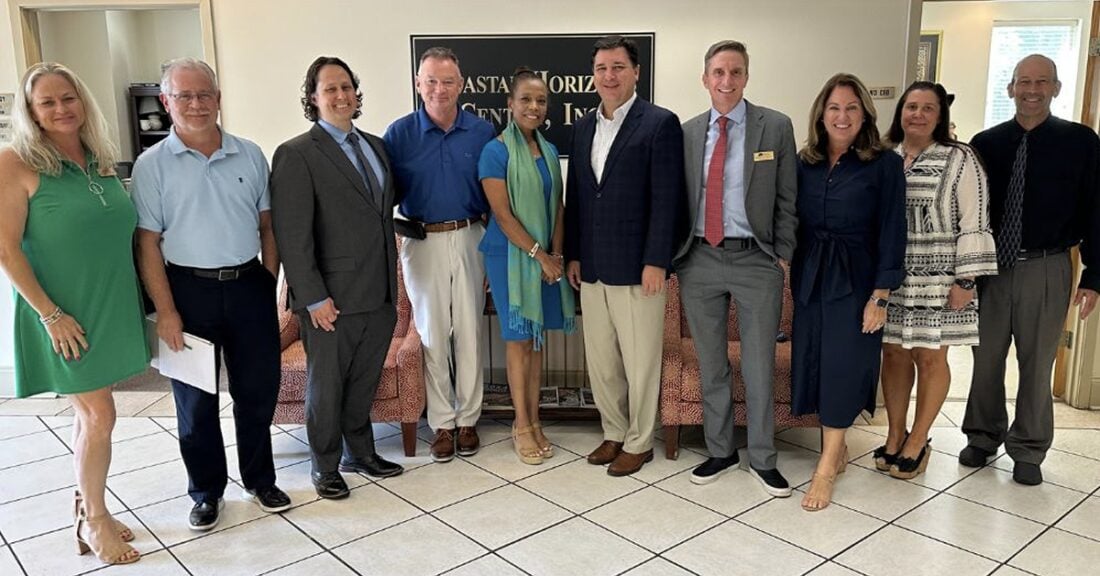2022–2024 Fellows Apply New Skills to Lead in Complex Times

Representative David Rouzer with Coastal Horizons' leadership and board members, including Fellow Ryan Estes (third from the left).
Beginning in early 2022, the twelfth class of the Annie E. Casey Foundation’s Children and Family Fellowship® used the intensive 21-month leadership development program to move their work forward in a uniquely challenging landscape.
“The pandemic illuminated for everyone the complex times that we’re living in,” said Barbara Squires, director of Leadership Development at the Casey Foundation. “That includes not only the struggles of the people the Fellows serve, but also their team members, partners and systems.”
The time the cohort spent learning and working together led to meaningful connections among the 15 participating leaders.
“The relationships that I’ve built have been extraordinary,” said Angelo Gonzales, chief of staff of Central New Mexico Community College. “I was able to form strong bonds that I think are probably going to last a lifetime.”
Driving Systemic Change in Child Mental Health
The six women and nine men chosen for the 2022–2024 class work in education, juvenile justice, child welfare, health and housing.
Ryan Estes, the chief operating officer of North Carolina-based mental health nonprofit Coastal Horizons, said the Fellowship gave him the confidence to pursue system-level reform in his state.
“As clinicians, we are closer to the people being served,” he said. “We’ve got to have a stronger voice in Raleigh to change the broader system.”
Estes is applying the tools of the Results Count® equitable results sequence and adaptive leadership to shape his conversations with elected officials and appointees, including U.S. senators and state cabinet officials.
“I’ve gotten really comfortable having those conversations and being seen as that expert in child mental health who can partner with the state to design a mental health system that works better for more people,” he said.
Supporting Leaders at the State Level
The Fellowship has a long history of supporting leaders of state-level public systems, and the twelfth class was no different. Jodi Hill-Lilly began the program as deputy commissioner of the Connecticut Department of Children and Families. By the end, Hill-Lilly had been tapped by the governor to be the agency’s next commissioner.
“It’s because of the Fellowship that I’m in this role,” Hill-Lilly reflected. “I had absolutely no interest in becoming commissioner, and I actually declined the offer at first. And then I thought about all the things I learned in the Fellowship, and I decided the commissioner role would be a wonderful opportunity to put it all into practice in a really meaningful way.”
Hill-Lilly is also spreading the Results Count approach to people and teams outside of her organization. One of the aspects catching on is Boundaries of Authority, Role and Task (B/ART), an analysis that helps individuals and groups define the work they can do and what they can ask of others occupying different roles to achieve their desired results.
“Our Office of Policy Management (OPM) manages the allocation of state funds,” she said. “I introduced my counterpart at the agency to B/ART, and now OPM leaders are using it to delineate the roles of state agencies. I’m spreading what I learned in the Fellowship everywhere I go.”






